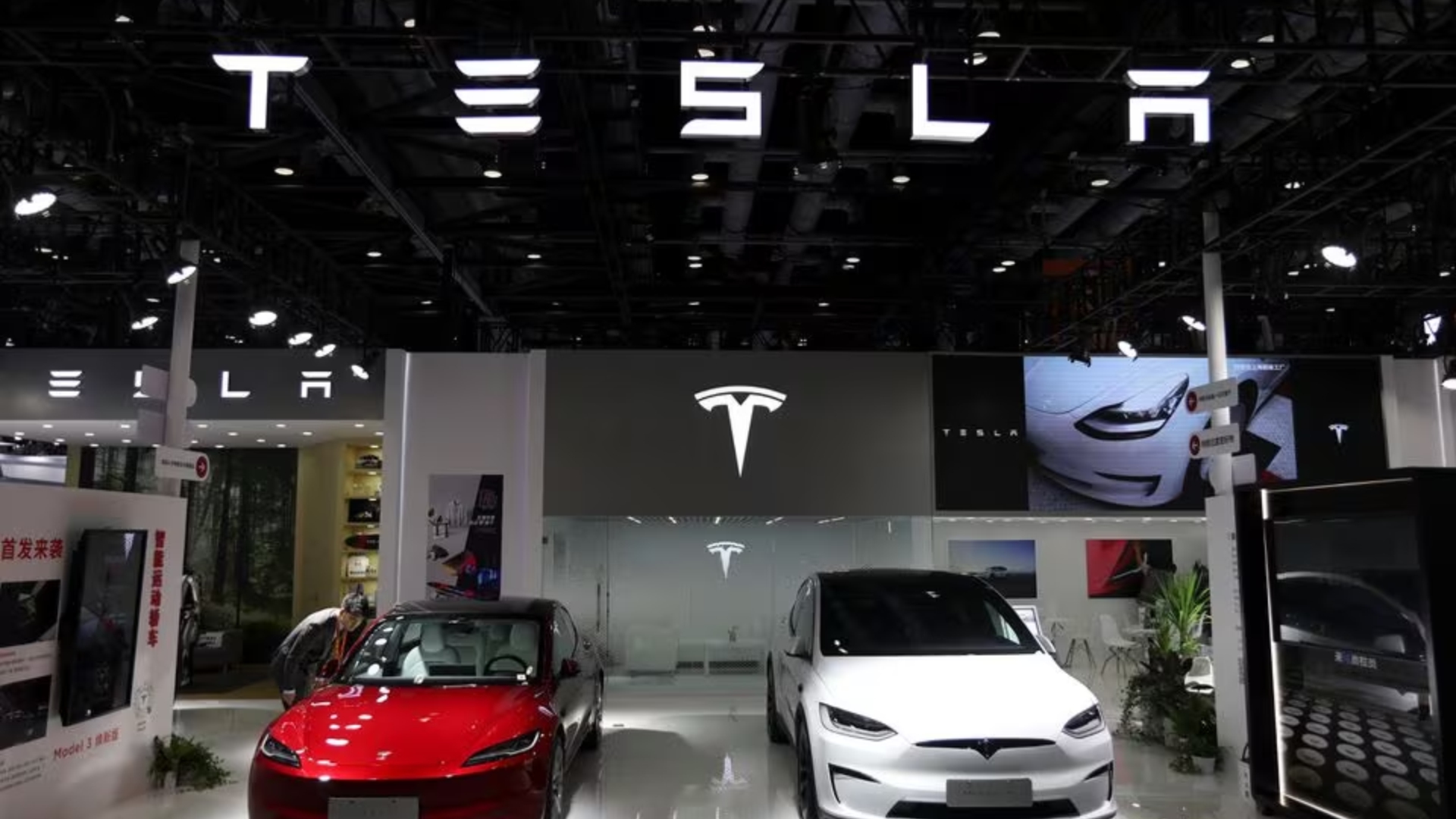(Reuters) – Tesla’s second-quarter margin hit a more than five-year low, the electric vehicle maker is likely to report on Tuesday, and its CEO Elon Musk is expected to double down on the company’s robotaxi plans and AI products.
Discounts to clear inventory, price cuts and incentives such as cheaper financing options offered to boost EV sales have squeezed Tesla’s margin over the past two years, while sales dropped as customers grew tired of its old model lineup.
The company is laying off 10% of its global workforce, a memo revealed in April.
Now, investors will want to hear more on Tesla’s pivot to self-driving technology and how that could once again set the company apart from other automakers and fuel the sort of rally in its stock that propelled it to a record high in 2021.
Musk had announced earlier this year that Tesla would unveil its robotaxi on Aug. 8, but signaled last week the automaker would take more time to incorporate a design change following a media report that the launch was delayed to October.
Wall Street expects Tesla’s automotive gross margin, excluding regulatory credits, to have slipped to 16.27% in the April-June period, its lowest since the first quarter of 2019, according to 20 analysts polled by Visible Alpha.
Profit margin for vehicle sales, excluding the sales of regulatory credits, was 16.36% in the January-March period and 18.14% in the second quarter of 2023.
Tesla’s discounted financing at a time when interest rates are high “represents an even less visible price cut”, Bernstein analyst Toni Sacconaghi said in a note earlier this month.
This cost will be “realized gradually over the life of the loan, effectively pushing out margin pressure into future periods,” he said.
Margins are likely to bottom by the end of this year and start to increase next year, analysts said, as costs associated with a production ramp-up of the Cybertruck eases.
“AI and robotaxi is such a huge opportunity over the next two, three, five years. So if you’re a long-term believer, you’re going to take the margins like your medicine,” said Paul Marino, Chief Revenue Officer of GraniteShares, which offers funds related to Tesla’s stock.

ROBOTAXIS
Some investors believe Tesla has little competition in the US robotaxi industry and its fleet of millions of cars on the roads that can be converted to robotaxis with a software upgrade, giving it an advantage over other automakers and ride-sharing platforms.
But as it did with EVs, Tesla could face competition in China from BYD, the country’s largest EV maker, and a dozen other companies that have rolled out driver-assistance systems designed to navigate its densely packed urban areas.
Tesla has divulged few details about its self-drive strategy.
“They might continue being a little bit quiet about it they are in the negotiations with OEMs for licensing but I think eventually FSD adoption rates and other numbers will be broken out,” said Jamie Meyers, senior analyst at Tesla shareholder Laffer Tengler Investments.
The company could be years away from releasing a fully autonomous vehicle with regulatory approval, experts in self-driving cars and regulation have said.
Self-driving companies, including General Motor’s Cruise, have faced technical and regulatory hurdles, and robotaxis could bring fresh challenges for Musk, who recently endorsed Donald Trump for US President.
“Biggest hurdle for FSD and robotaxis will be getting regulatory approvals. Trump administration could help to move that along quickly,” said Dennis Dick, equity trader at Triple D Trading said, who has a long position in Tesla.

AFFORDABLE CARS, DELIVERIES GROWTH
Tesla announced in April a strategic shift in its vehicle development, opting to introduce “new models” by early 2025 utilizing existing car platforms and production lines, diverging from previous plans for an entirely new model.
“Investors are looking for a really positive outlook into the future, with some near-term surprises that can be implemented quickly and I think with the new lower cost model, they’re going to want to see progress on that,” GraniteShares’ Marino said.
Tesla handed over more cars to customers than analysts expected in the three months to June, but deliveries were about 5% lower than a year earlier. Analysts largely expect the company to a small increase in deliveries this year from 2023.
To match its 2023 delivery record of 1.81 million vehicles, Tesla needs to deliver at least 977,815 vehicles in the second half of this year.
“I think deliveries will grow fractionally for full year 2024 and grow around 15% in calendar 2025. The most important part is that they talk about September deliveries returning to growth,” Gene Munster, managing partner at Deepwater Asset Management, said.
 Reporting by Akash Sriram in Bengaluru; Editing by Sayantani Ghosh and Arun Koyyur
Reporting by Akash Sriram in Bengaluru; Editing by Sayantani Ghosh and Arun Koyyur











